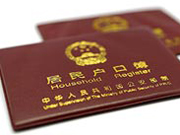Hukou: China's crucial registration document

 0 Comment(s)
0 Comment(s) Print
Print E-mail CNTV, March 15, 2015
E-mail CNTV, March 15, 2015
In China, besides the national identity card, a Hukou is the next most crucial document a citizen holds. It refers to a system of registration, in which a person is registered as a resident of a province, autonomous region or municipality. The place of registration is decided by where a child's parents are already registered. The registration contains information such as the person's name, date of birth and parents' names.
The Hukou decides a number of things. Such as - where a child receives school and college education, where a person buys property or a car, pensions, healthcare entitlement etc. The general rule of thumb is - if you aren't registered in a particular province, municipality or autonomous region, it is difficult to receive social services, education and other benefits there. .
As part of reforms of the Hukou system, a landmark new policy was rolled out last year, where the concept of a "resident hukou" will remove the rural-urban divide. This is to help an estimated 100 million rural hukou holders to be registered in cities. In mega cities, a residence permit system will be introduced, granting hukou using a credit system, taking into consideration criteria such as, stable employment, residence, social benefits records, etc.





